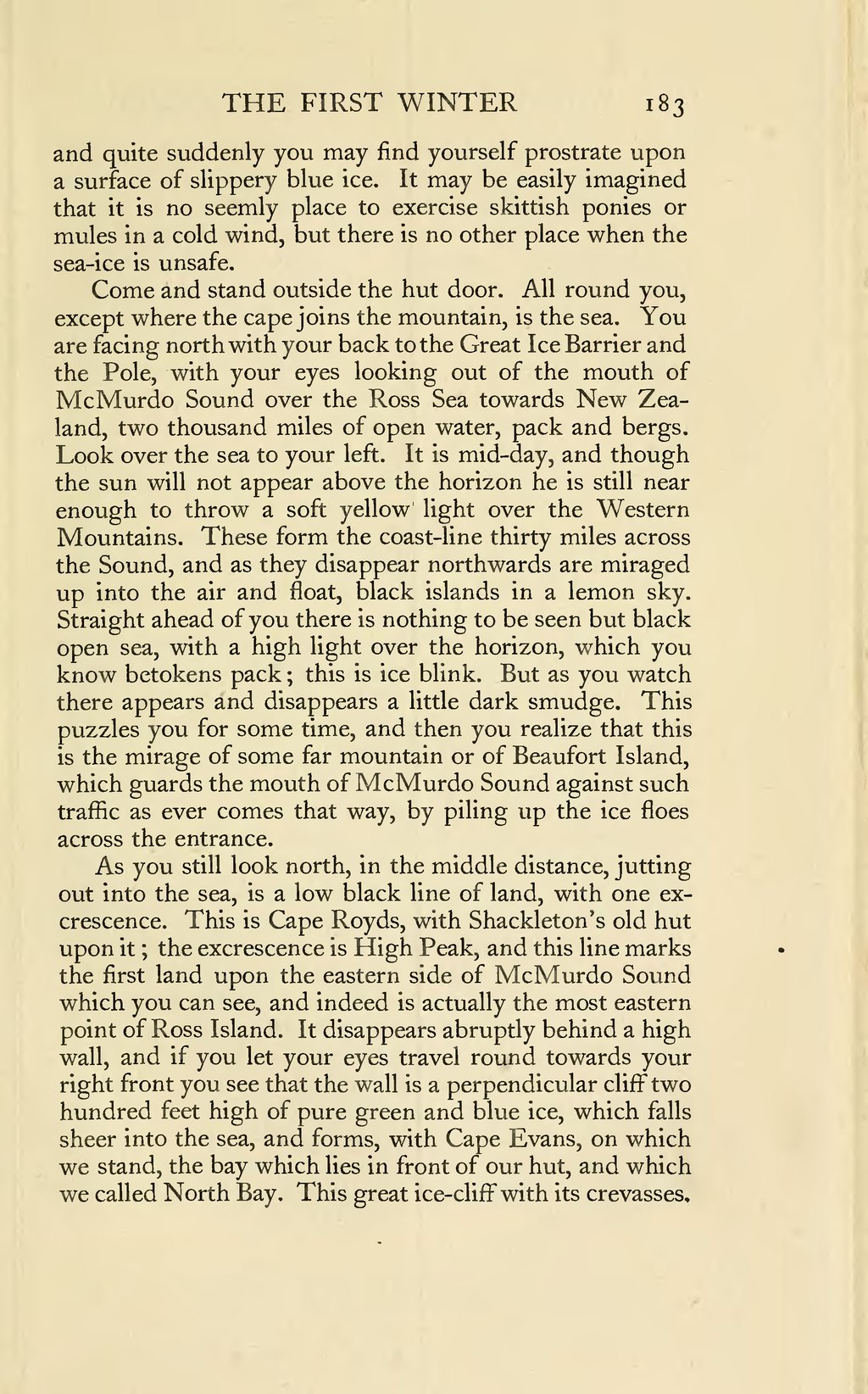and quite suddenly you may find yourself prostrate upon a surface of slippery blue ice. It may be easily imagined that it is no seemly place to exercise skittish ponies or mules in a cold wind, but there is no other place when the sea-ice is unsafe.
Come and stand outside the hut door. All round you, except where the cape joins the mountain, is the sea. You are facing north with your back to the Great Ice Barrier and the Pole, with your eyes looking out of the mouth of McMurdo Sound over the Ross Sea towards New Zealand, two thousand miles of open water, pack and bergs. Look over the sea to your left. It is mid-day, and though the sun will not appear above the horizon he is still near enough to throw a soft yellow light over the Western Mountains. These form the coast-line thirty miles across the Sound, and as they disappear northwards are miraged up into the air and float, black islands in a lemon sky. Straight ahead of you there is nothing to be seen but black open sea, with a high light over the horizon, which you know betokens pack; this is ice blink. But as you watch there appears and disappears a little dark smudge. This puzzles you for some time, and then you realize that this is the mirage of some far mountain or of Beaufort Island, which guards the mouth of McMurdo Sound against such traffic as ever comes that way, by piling up the ice floes across the entrance.
As you still look north, in the middle distance, jutting out into the sea, is a low black line of land, with one excrescence. This is Cape Royds, with Shackleton's old hut upon it; the excrescence is High Peak, and this line marks the first land upon the eastern side of McMurdo Sound which you can see, and indeed is actually the most eastern point of Ross Island. It disappears abruptly behind a high wall, and if you let your eyes travel round towards your right front you see that the wall is a perpendicular cliff two hundred feet high of pure green and blue ice, which falls sheer into the sea, and forms, with Cape Evans, on which we stand, the bay which lies in front of our hut, and which we called North Bay. This great ice-cliff with its crevasses,
